Atalanta, Man For Man Pressing, & The Gian Piero Gasperini Love Story
Man for man pressing and man for man work ethic. That seems to be the way of doing things at Gian Piero Gasperini’s Atalanta. The Italian side strolled up to Anfield and did something not many sides have done in Jurgen Klopp’s era: win. But they didn’t just win; they smashed the Red’s from pillar to post and ended the European fairy tale they had dreamed of for the farewell of their great German coach.
When Gasperini took over, there wasn’t much hope for Atalanta in regards to fighting amongst the top six in Italian football. The 66-year-old took over the club in 2016 and finished fourth in his first season. In the five seasons that came before, Atalanta struggled to break into the top ten, finishing 12th, 15th, 11th, 17th, and 13th, respectively. It wasn’t a team that felt they could believe; it wasn’t a Bergamo that felt they could achieve what they have since then.
According to fan Francesco Simoncini, Atalanta are nicknamed the queen of the provincials due to the number of Seria B titles they have won (6), but prior to Gasperini, they were a team that was relegated back to the second flight every couple of years. They were never a mainstay in the first division, and they never got to fly the flag as high as they have since his appointment. Since 2016, the club’s lowest league position has been 8th. They finished 3rd three seasons consecutively and were minutes away from getting to a Champions League semi-final, but for the might of PSG overthrowing them in the dying minutes of the quarters.
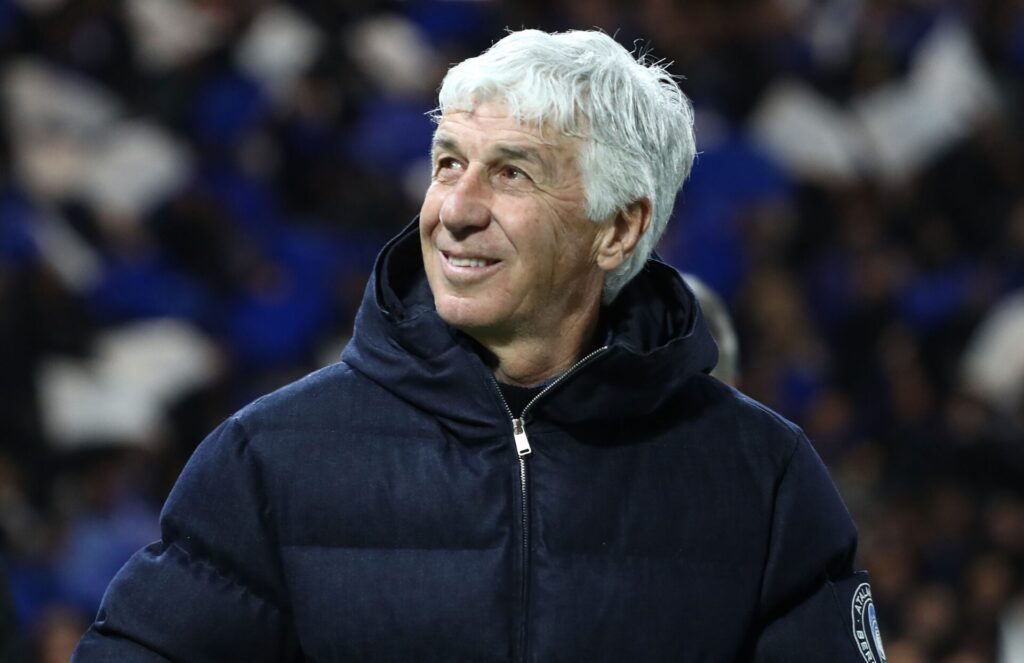
How do Atalanta operate?
Gasperini hasn’t been alone in the resurgence of La Dea. The owners of the club do boast a lot of money, with Antonio Percassi being one of the richest men in Italy and Stephen Pagliuca being the boss of the American basketball side, the Boston Celtics. Atalanta, however, cannot spend outside of their means, with the owners abiding by the FFP restrictions in place at present, which prohibit clubs from spending a huge amount over what they pull in commercially. Atalanta still falls behind some of the bigger clubs in Italy when it comes to the size of the fan base, which has led the owners to spend smart and not large since they took over.
This season, the club spent €78 million but made €151 million from their sales, including the sale of Rasmus Hojlund to Manchester United, which is expected to earn them around €72 million. That’s a positive net spend of €73.82 million. They do spend money, with €130 million being spent the season before, but it’s always money spent within their means, careful not to become to big for their boots to try and bridge the gap to the Juventus and AC Milan’s of this world. That’s the way things are done at Atalanta; they sell to buy. They cannot take risks with huge purchases because they need to make the money back to fund them. This is likely the reason the club may never become a huge superpower, as they try to spend within their means to thrive at the level they can get to, as opposed to spending outside their means to try and become something bigger.
I spoke to Giorgio Dusi from Gazetta, who informed me that Gasperini is more of a coach than a manager. He isn’t really involved in the behind-the-scenes stuff at the club and strictly does his work and talks on the pitch as opposed to behind the desk. His main goal at the club is to improve the players on the training pitch and try to get them to the best level he can during his time with them.
The players are usually always chosen by the directors above him, and while he would have a voice regarding what’s going on, he usually does his work exclusively on the pitch and allows the directors to choose and purchase the players. This includes the likes of the Sporting director Tony D’Amico and Luca Bassi. He is not like Arsene Wenger or Alex Ferguson, who used to lead their club from top to bottom. This is an important misconception that has to be addressed when speaking about the Italian manager.
Man for Man, Gasperini’s the man:
Since Gasperini took over, Atalanta has deployed a man-to-man system, no matter the opposition. Liverpool found this out the hard way, and they struggled in both games to find any sort of space to build up centrally or wide, scoring no goals from open play across 180 minutes. The team usually sits in a 3-4-3, 3-4-1-2, or 3-4-2-1. These three formations are at the centre of the Gasperini way of doing things, with his philosophy being very much embedded in using three central defenders.
I spoke to the brilliant Jack Fawcett regarding the man-for-man system and how it differs from that of a hybrid pressing system, which is much easier to nullify if you push your full-backs forward in build-up and play over the team deploying the hybrid press, which has been seen on numerous occasions with Manchester United this season. The man-to-man press negates this vulnerability, and it’s a system that is much harder to counter, especially in teams that don’t mind being disrupted with rotations, which was something Liverpool attempted to do with Atalanta, who were not phased.
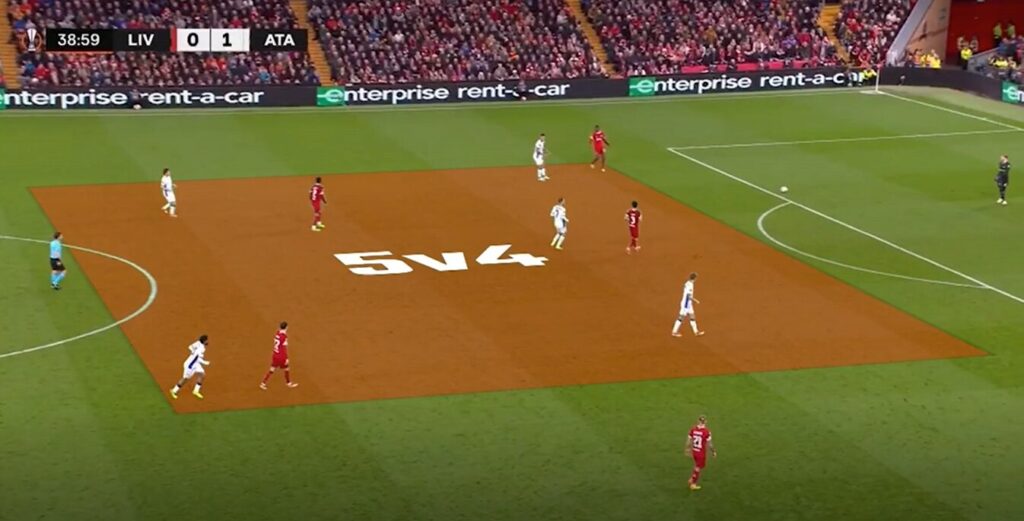
It’s a system deployed to nullify the opposition’s threat, and as I’ll mention later on in the piece when talking about Liverpool, force them back to the goalkeeper, who usually will have to pump the ball long and hope the team can hold it up or pick up the second ball. Once you force your opponent long, the likelihood of you winning the ball increases due to the fact that it’s your defenders and deep midfielders up against the opposition’s attacking options, with the former always much more likely to win battles in that area of the pitch than the latter.
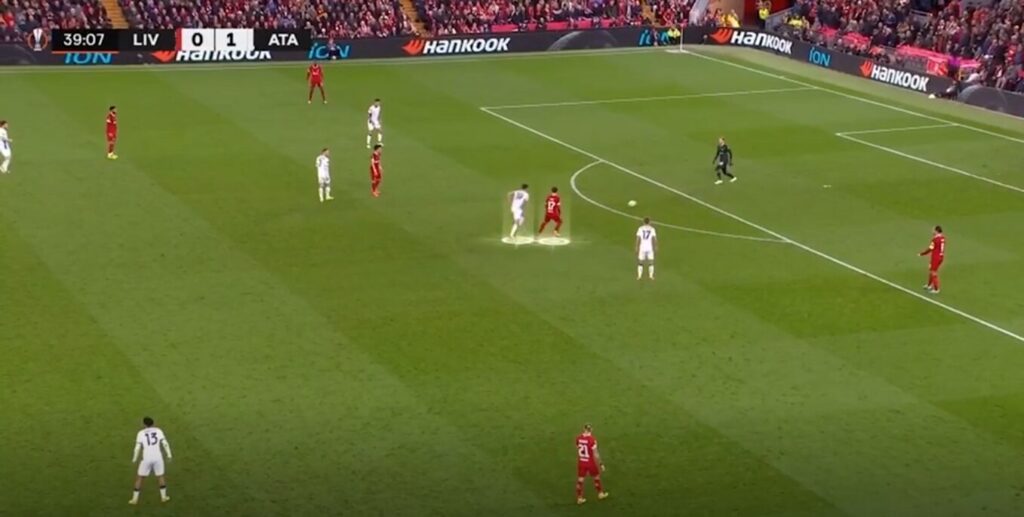
It’s a system they deploy no matter the opposition, no matter the stage, no matter the stipulations. They press high, man for man, all over the park and try to stop the ball from going into the key players on the pitch for the opposition. Liverpool tried to nullify this by pulling Curtis Jones wide, Alexis Mac Allister into right midfield positions, and even dropping Mohamed Salah into a central midfield position at one stage to try and change the outcome of the affect the tactic was having on them. It didn’t work. Allison had the most forward passes in the team for Liverpool, and that was due to the fact he was effectively the only player Atalanta couldn’t man mark.
Liverpool couldn’t hold the ball up when it came long from Alisson due to the fact it was Atalanta’s duel winners aerially and on the ground up against Liverpool’s creative players. This was more evident in the second leg even when they lost than it was in the first leg, with Atalanta dominating Liverpool when it came to ground duels, with Sead Kolasinac in particular winning 88% of his ground duels throughout the 90 minutes.
It’s not a tactic many teams in the Premier League deploy, which is why it will come as a surprise to Jurgen Klopp.
Going the other way, Gasperini is all about off-the-ball runs and overloads. These off-the-ball runs create confusion and chaos in the opposition’s defence, and this exact tactic was deployed twice at Anfield to unhinge the Red’s. For the third goal, Atalanta’s aggressive system won the ball back on the halfway line, and they created an overload centrally through the run of Ederson beyond Scamacca from midfield and Palasic.
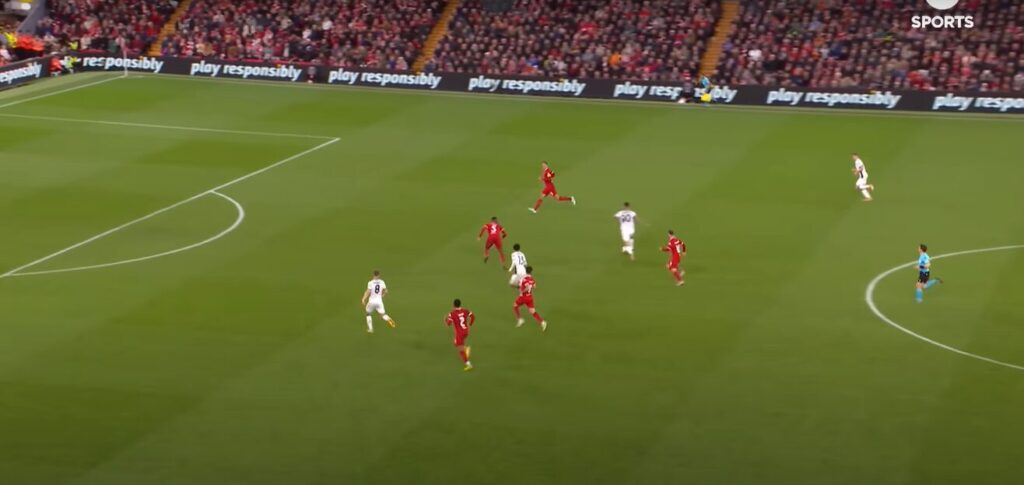
For the first goal, Atalanta situated three players in close proximity on the right-hand side of the pitch in a central area, which overloaded that space, dragged Liverpool’s defenders over to them, and created space in the middle of the box for the striker, Scamacca, who took his chance with aplomb.
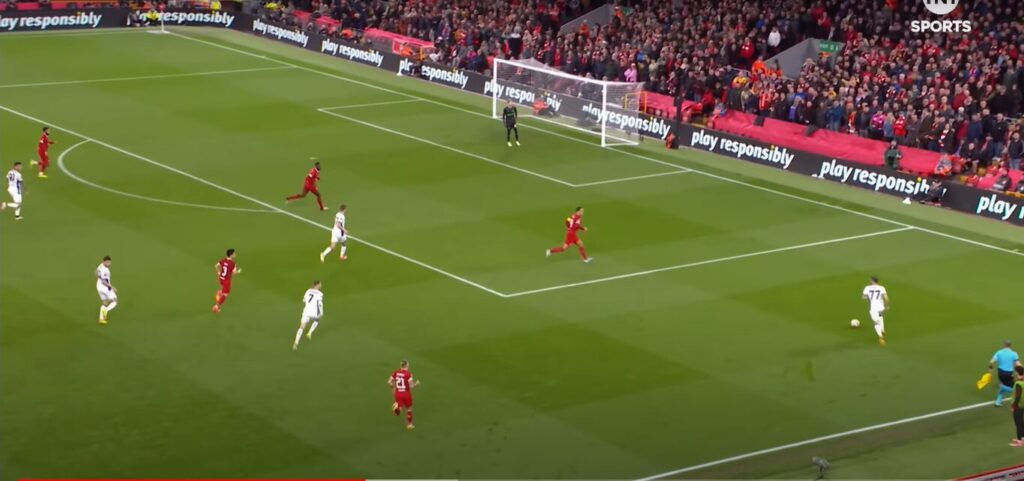
For Liverpool to be shocked like this tactically was reminiscent of Sir Alex Ferguson coming up against Marcelo Bielsa in the Europa League while he was at Athletic Bilbao. United were tactically destroyed on the night, and failed to beat the Spanish team over two legs, leaving many shocked at what had transpired. The thing was, those who knew about Marcelo Bielsa before the game didn’t blink an eyelid at what had happened, similar to those who knew about Gasperini before he did what he did at Anfield.
Trophies don’t always equal success
The goal at the club is to try and stay near the top of the table for as long as they can and possibly try and win a trophy along the way. They could do that this season in the Europa League, as they’ll face Marseille over two legs with the hopes of facing either Bayer Leverkusen or Roma in the final. If they managed to win the tournament, it would be the first time the club has won a European competition and their first major trophy since 1963.
Gasperini, however, doesn’t believe that leaving the club without a trophy would make it an unsuccessful reign at the club, detailing the idea as idiotic in a recent interview.
“We cannot ask ourselves this question. The season is fantastic already, regardless of what happens. I think it’s idiotic to say you are a loser if you don’t win trophies. If you are a journalist and not a director of a newspaper, are you a loser?”.
It’s hard to argue with his reasoning. There’s a common misconception in football that the only way a team can be happy is if they’re winning the biggest pots on the biggest stage, but that’s far from the truth. There has to be victory in taking a team from being relegated every couple of seasons to winning 3-0 at Anfield and fighting near the top of Seria A, regardless of whether that ends up in a trophy one day.
That will be the legacy of Gian Piero Gasperini even if Atalanta fails to win the Europa League this season, but boy, would it be a nice story if he could get it done too.


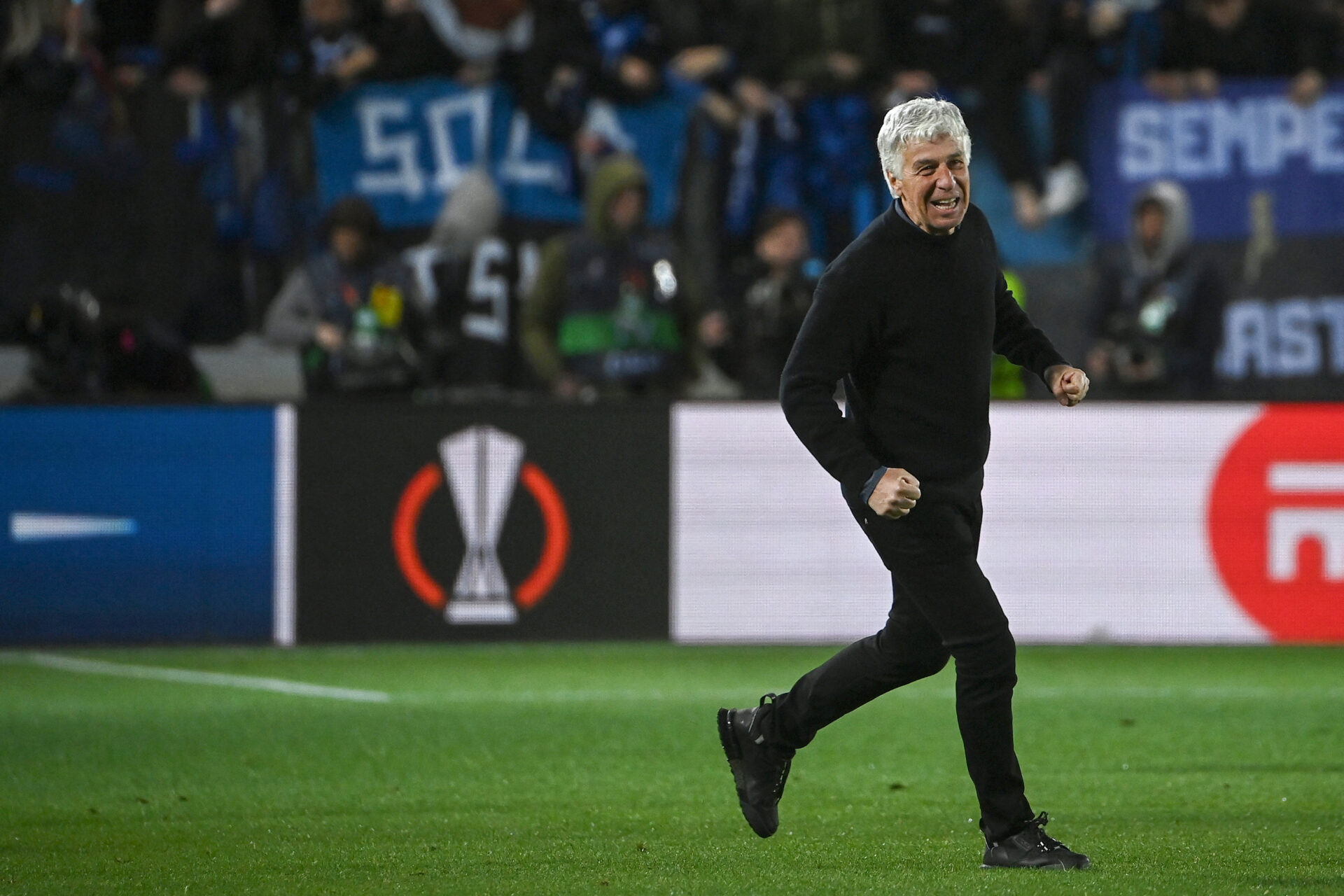
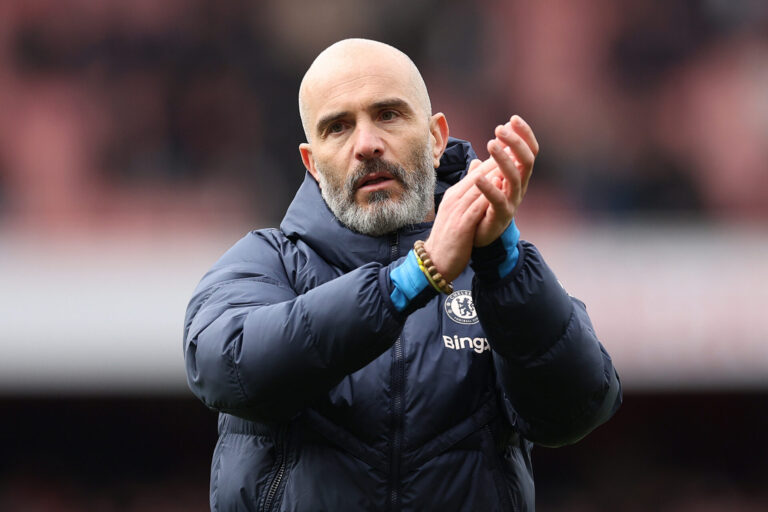
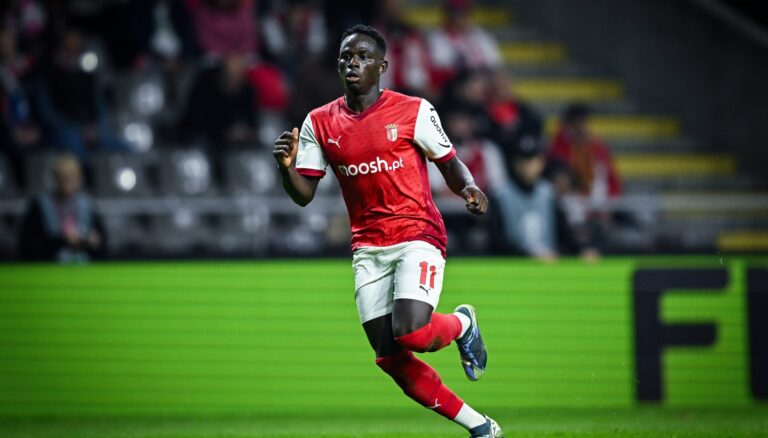
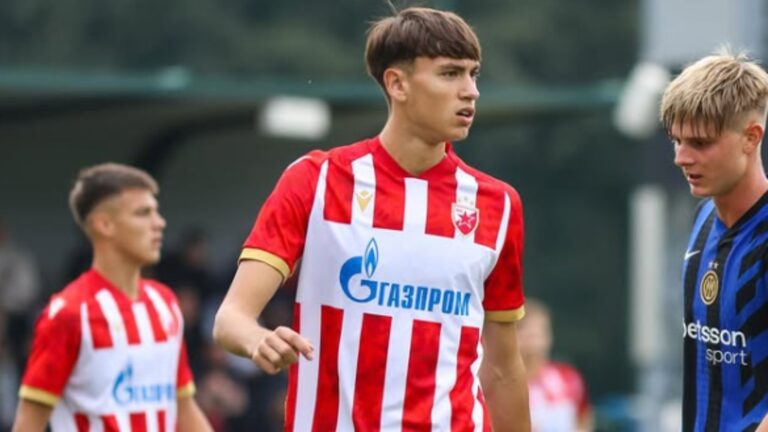
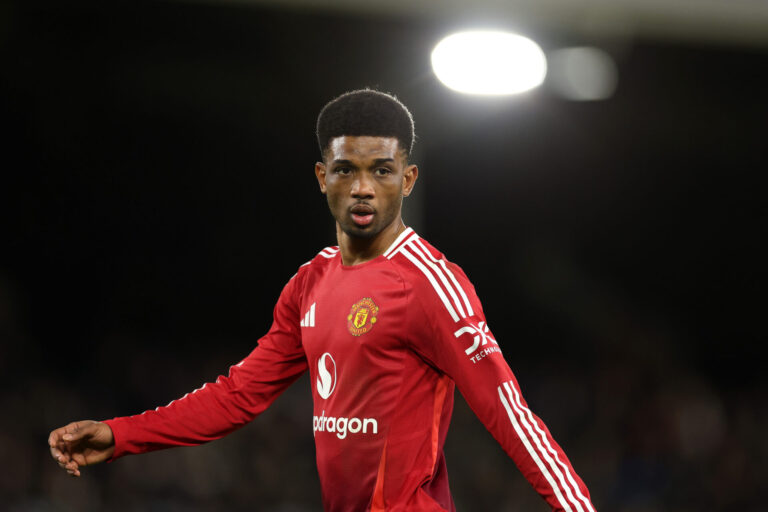
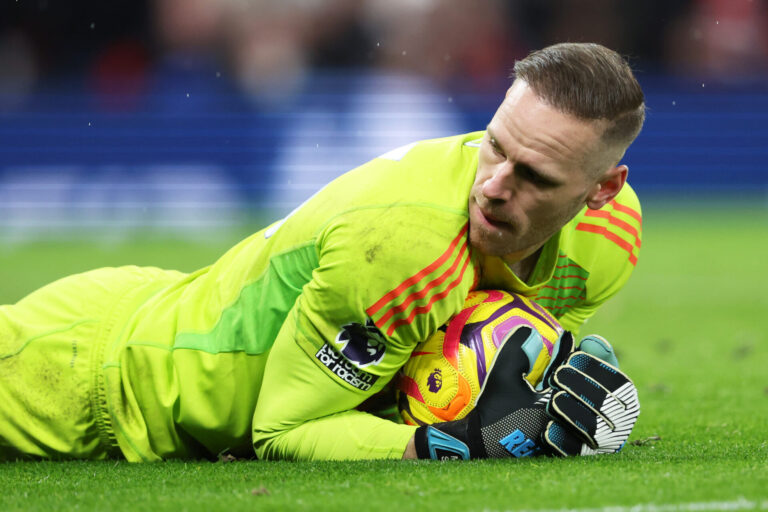
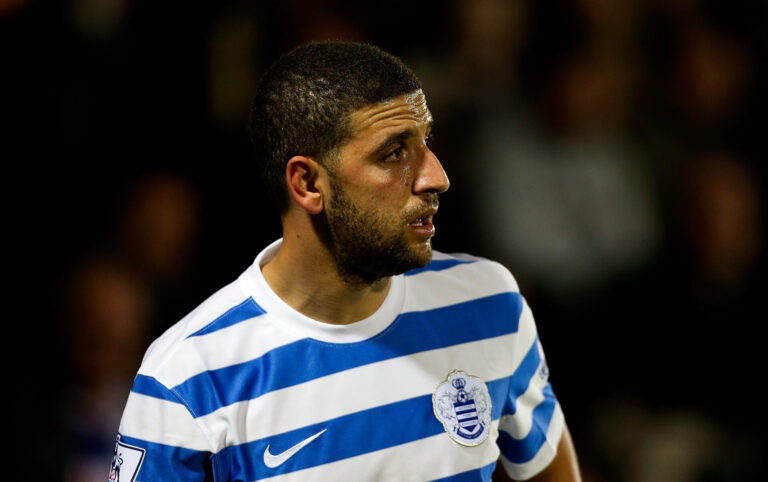
2 Comments